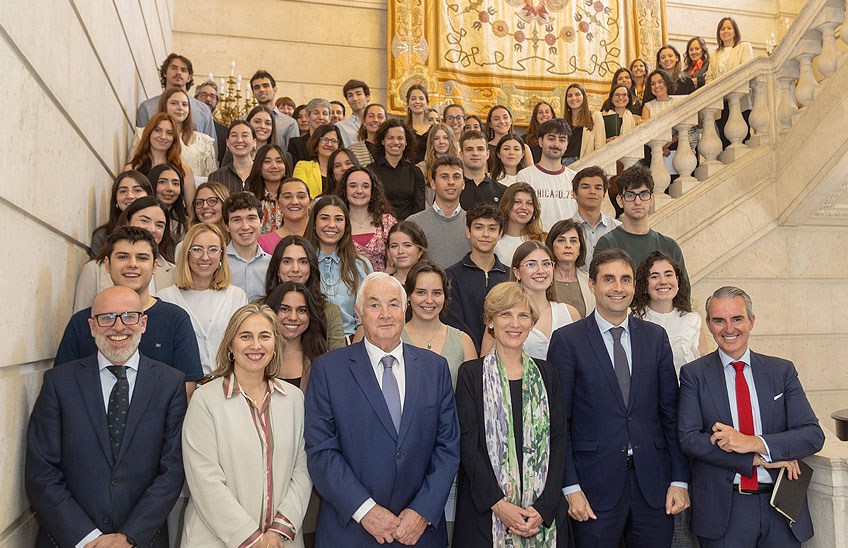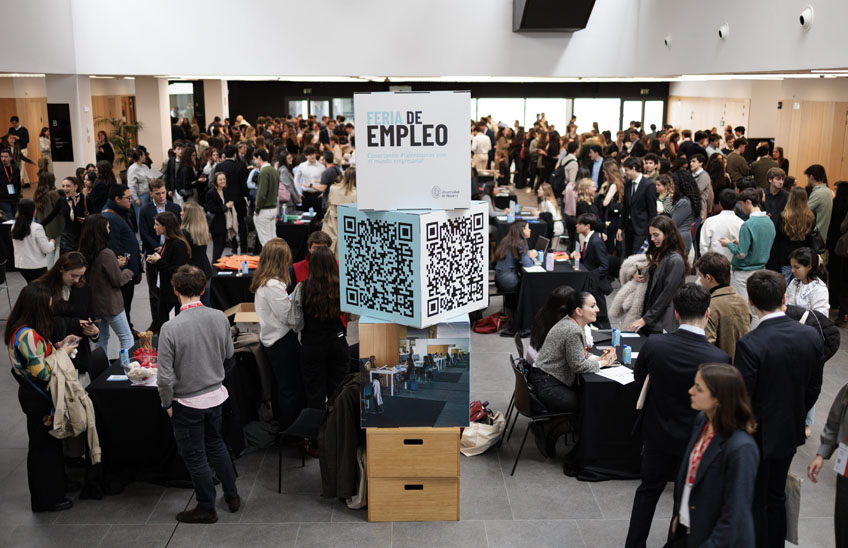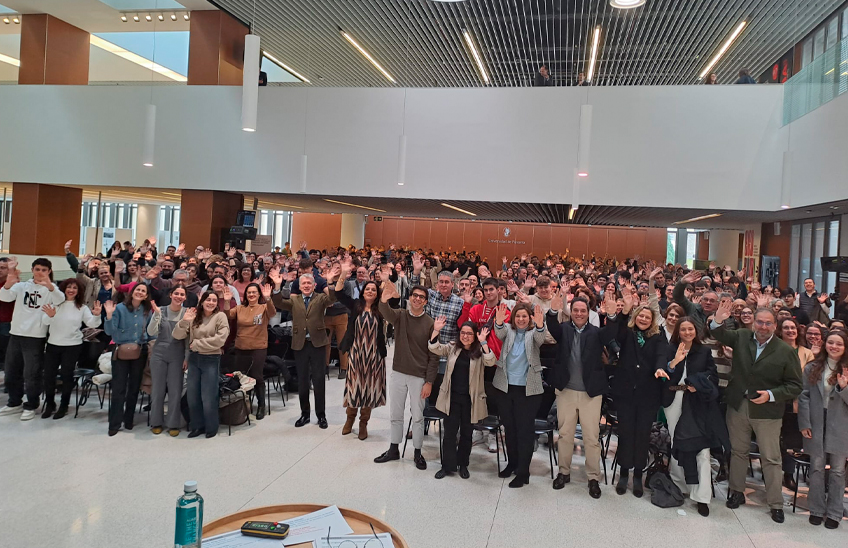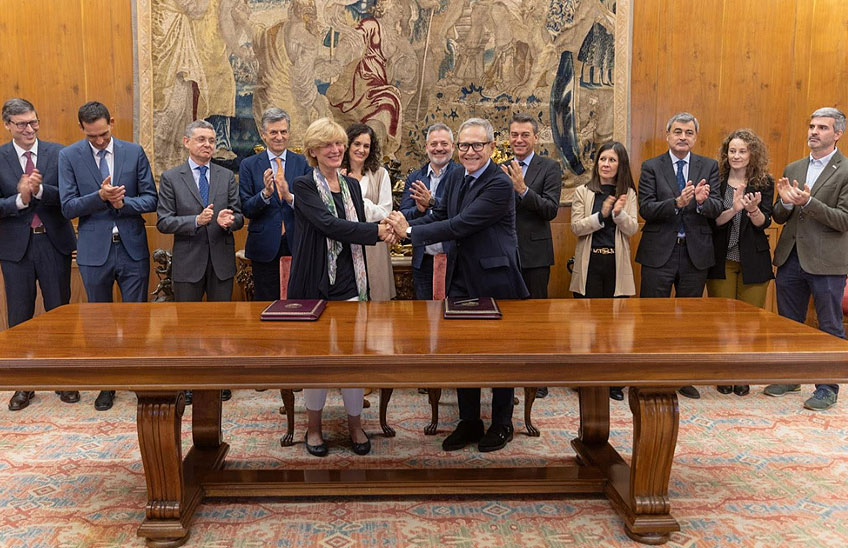training with social impact: fourteen female students from the University collaborate in the care of migrant women
Students from Schools of Nursing and Education and Psychology have participated in a project of social and professional intervention in Villa Teresita.
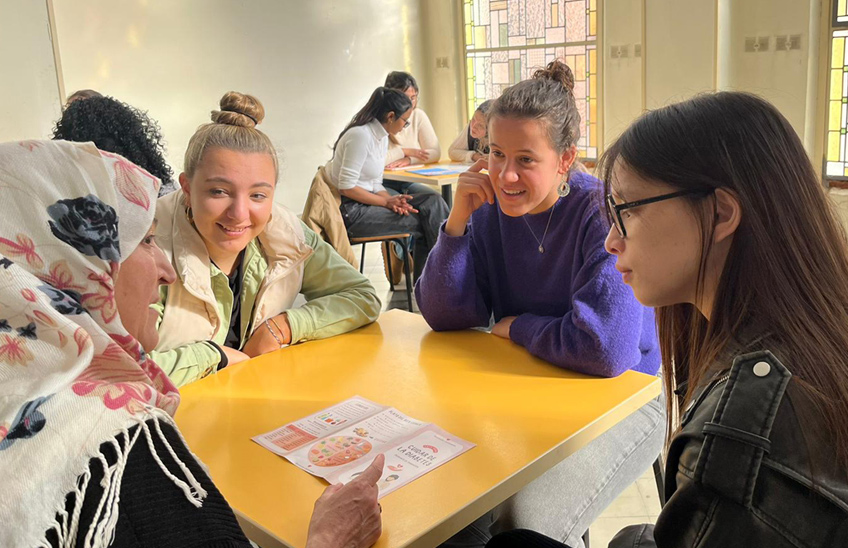
11 | 12 | 2024
Fourteen students from Schools of Nursing and Education and Psychology of the University of Navarra have participated in a project of social and professional intervention in the institution Villa Teresita. This initiative allows them to collaborate directly with migrant women at risk of social exclusion, combining theory with internship in a real context.
The project, which started three years ago, is developed within the subjects "Nursing care to human diversity" (Degree in Nursing) and "Practicum III" (Degree in Pedagogy). The students work in preventive care and training in health for women in vulnerable situations, a learning that involves not only technical knowledge, but also the management of cultural and social diversity.
With a 20% migrant population in Navarra, Villa Teresita plays a role core topic in the care of marginalized women since 1952, offering attendance social, legal and health care, as well as literacy and cultural promotion programs. Thus, it becomes an ideal space for practical learning for the students, who are confronted with situations that allow them to develop a culturally competent approach .
Mandila Acharya, a fourth-year nursing student and immigrant in Navarra, highlights the importance of this project: "As a nurse, developing skills to understand each patient, regardless of their origin or culture, will improve my ability to care for others". For her part, Bianca Rodriguez, a student of Pedagogy, stresses that facing people with very different cultures, languages and educational backgrounds enriches her training: "These projects take us from theory to internship in an invaluable way".
The students' work begins with a meeting in which they gather information about the participants: age, origin, health, diet, beliefs, and other aspects that affect their wellbeing. With these data, they analyze as a team their health needs and design personalized interventions. This approach allows them to reflect on prejudices and cultural differences, in addition to facing challenges such as the initial distrust of some patients.
Adriana Erice, a nursing student, explains: "Mistrust and lack of information sometimes hinder a good diagnosis, but attention staff and the right attitude are key. One of the cases is that of Ikram Beraane, an Algerian woman who has lived in Spain for more than five years and faces difficulties as the main caregiver of her sick son. Through the intervention of Mandila Acharya and Bianca Rodriguez, the team addressed the importance of caregiver care. Ikram said, "They understood all my concerns and needs. I have felt myself reflected".
This interdisciplinary project , which combines pedagogical and healthcare profiles, transcends academia by providing tailored, person-centered care and reinforces the importance of training culturally competent professionals in the Community of Navarra.

